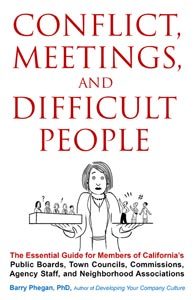 When their time comes, some people are ready to take that last step. I wonder how it will be for me. Will I be ready?
When their time comes, some people are ready to take that last step. I wonder how it will be for me. Will I be ready?
Last month I attended a memorial service for a recently departed friend. She’d been ill for some time, then suddenly took a steep dive. The hospice nurse called her closest relative, her granddaughter in San Francisco, urging her to come quickly, “You may not make it in time.” The granddaughter called her brother, a university student in London, England. He immediately booked a flight, but could not be in Marin County for 21 hours. Though my friend, the grandmother was medicated, she understood that her grandson was delayed. The grandson did not expect to arrive before his grandmother, his closest friend and lifelong supporter was gone. He arrived in San Francisco, rushed to Marin, sat by his grandmother’s side, taking her hand in his. After some minutes of loving exchanges, his grandmother slipped into a coma, dying a few hours later. She had waited for him.
Holding back. A hospice nurse told me this story. She was called by a family to come immediately. The 92-year-old mother was rapidly fading. The nurse talked with her and quickly realized there was something on her mind, that she could not talk about, but was stopping her from passing on. The nurse asked the daughter if there was something their mother was worried about what might be stopping her from dying. The daughter said, “Yes, she’s worried about dying before the upcoming election. She doesn’t want xxxx to be elected president. She wants her vote to be counted against him.” The hospice nurse went back to the mother and said, “I don’t know where you’re going, but wherever it is, you may be in a better position there to influence the election than you are here.” The mother smiled, winked, and let go.
How might it feel to finally let go? Is it similar to falling asleep? Maybe, but when I fall asleep, I expect to wake up. The grandmother and mother intentionally waited — and intentionally let go. As I mentioned in my July 30th blog “A Good Death”, I believe my close friend did the same, intentionally letting go, “ending his life as he wanted, in control, surrounded by family, friends, and music.”
All three were ready to leave behind this remarkable and most precious gift. I’m trying to put my mind in that place. How would I feel to be so ready, so finished, so completed? I imagine it’s peaceful. Perhaps going to sleep is the closest we can know without actually being there.
Thinking about death this way seems a little bit like thinking of my remaining time as I described in my blog, “Discovering My Remaining Time”. These thoughts make me more conscious of the present moment, and aware of what is important. That’s a good thing.
My mother’s death in 1988 was grim. Several strokes had left her partially paralyzed, unable to effectively speak or write. Her last years were in a nursing care home in Sydney, Australia, while I lived in Berkeley, California. I’m ashamed now of how I was too focused on my family and work to not pay more attention to her and her needs. I was not present when she died. Afterward, her pastor told me that he believed she deliberately stopped eating and drinking. I took that to mean she had had enough of the misery of being trapped inside a body that could not do what she wanted and could not communicate. I believe she died intentionally, to avoid prolonging her private hell. I wish I could make amends for not being there for her. I wish I had been more caring.
Planning gets us only so far. The future injects its own realities. I hope that when my time comes, I’ll be aware, deliberate, and loved.
Thank you for reading along with me. As always, I’d appreciate and value your thoughts and experiences. How do you discuss your end of life with your family?
me, Barry Phegan




